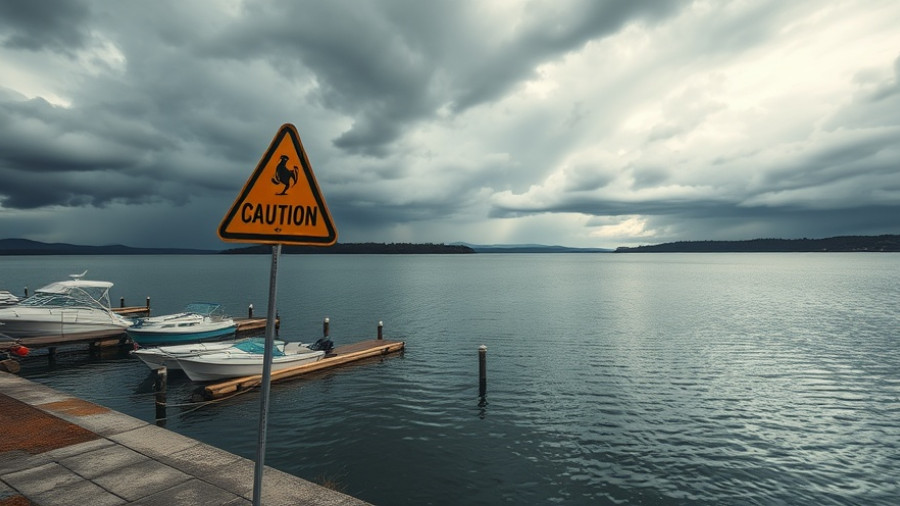
Colorado's Urgent Response to Zebra Mussel Invasion
This summer marked a critical juncture in Colorado’s ongoing battle against invasive zebra mussels, with adult mussels detected in the Colorado River for the first time. Zebra mussels, tiny freshwater mollusks capable of rapid reproduction, pose significant environmental and economic threats, clogging water systems and outcompeting native species for resources.
The Role of Funding and Public Education
Colorado Parks and Wildlife (CPW), tasked with monitoring and mitigating this invasion, emphasizes that sustained funding is vital for their efforts to control zebra mussels. After their initial detection in Colorado in 2022, the state committed resources to ongoing public education initiatives, urging boaters and anglers to assist in prevention measures by ensuring boats are cleaned, drained, and dried before transitioning between bodies of water. The motto is simple yet effective: “Clean, Drain, Dry.”
Legislative Action for Prevention
Recognizing the urgency of the situation, U.S. Rep. Joe Neguse introduced the Stop the Spread of Invasive Mussels Act to enhance and solidify coordination efforts at federal and state levels. Secondary legislation sponsored by Michael Bennet further aims to secure crucial funding for inspection and decontamination protocols, reflecting a bipartisan commitment to combat the zebra mussel threat.
The Impacts of Zebra Mussels on Colorado Waters
As this invasive species takes hold, the potential to damage water infrastructure and disrupt local ecosystems amplifies. In the Great Lakes region, zebra mussels have wreaked havoc, and Colorado fears a similar trajectory. Already, the CPW reports having intercepted 281 boats carrying these invasive pests, underscoring the necessity for preventative measures and public awareness campaigns.
Looking Ahead: Community Involvement is Key
Public engagement remains paramount for Colorado as it navigates this environmental challenge. Events and educational programs designed to inform residents about the risks associated with zebra mussels will be imperative as the state gears up for future inspections and treatments. Colorado must continue to leverage its community's spirit, ensuring that everyone plays a role in safeguarding the state’s waterways.
Conclusion: Why Awareness Is Crucial
As Colorado intensifies its responses to the invasive zebra muscles, it becomes abundantly clear: funding, public education, and regulatory measures are three critical components within this broader strategy. The collaborative efforts not only protect aquatic ecosystems but also serve as a vital economic shield against potential costs attributed to the damages these invasive species may incur.
 Add Row
Add Row  Add
Add 




Write A Comment